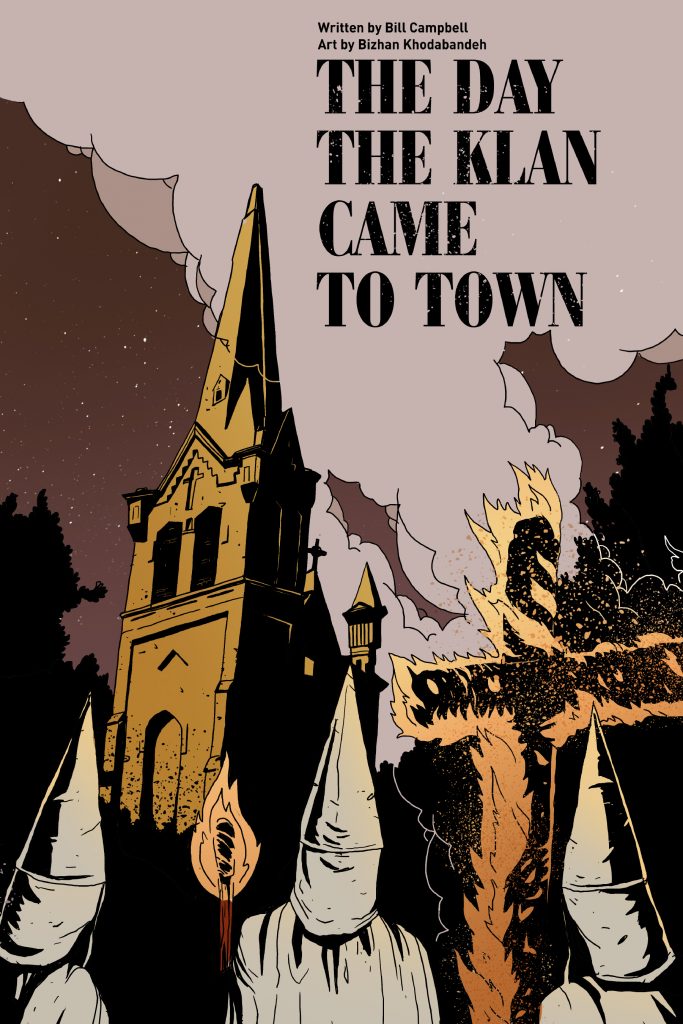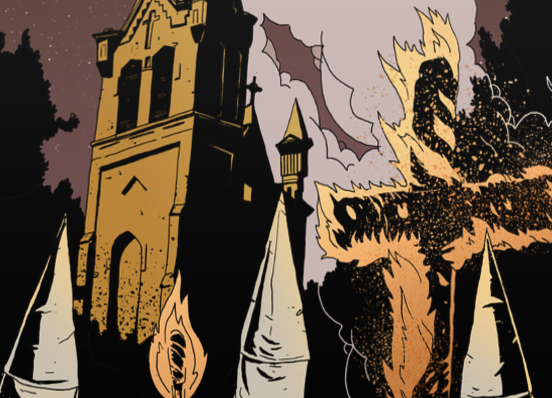By Walker Evans
Trib Live
July 16, 2023
At the Andrew Carnegie Free Library & Music Hall, there’s one word that best summarizes our values, our goals, and the purpose of our work.
If you’ve read my Signal-Item columns in the past, you’ll have seen me use it countless times. In fact, it appears in our mission statement not once but twice: it’s “community.”
The depth and closeness of the Carnegie Carnegie’s bond with its community was one of the first reasons I fell in love with Carnegie after starting my tenure as library director in 2020. I’ve lost count of the number of times I’ve met library patrons who fondly remember visiting the old brick building on the hill as children, now bringing their own grandkids to our story times. It’s a special relationship — one with a deep foundation, built to last.
That almost tangible sense of a connection with the past has been on my mind lately, as we look towards a notable anniversary in Carnegie. The infamous rally, march and ensuing violence of so-called “Karnegie Day,” when thousands of members of the Ku Klux Klan battled ordinary citizens in the streets of Carnegie, took place 100 years ago this Aug. 25.
I remember the first time I learned about the events of that day, shortly after I came to the Carnegie Carnegie. I was trying to get to know the community, and had paid a visit to the friendly folks at the Historical Society of Carnegie.
Somewhere in between admiring the scale model of town and hefting the 1910s-era Honus Wagner bat, I found myself fascinated by the story of this long-ago day.
The Klan had seen a resurgence following the 1915 release of D.W. Griffith’s “Birth of a Nation,” and the growing numbers of immigrants in western Pennsylvania provided a target for the hate group’s xenophobia. On Aug. 25, Klan members first held a rally in which thousands of new members were inducted into the KKK, then marched on Carnegie in a show of force and intimidation.
If you’re from Carnegie, you probably know the story of what happened next. The Klan was met by an outraged and determined resistance of the residents of Carnegie, who ultimately drove the invaders back out of town. In the words of Carnegie’s famous son, Circuit Judge Ruggero Aldisert, on that night “the Klan suffered wounds so serious that it would never recover completely” (“Road to the Robes,” page 27).
When I think about the idea of community, I see it clearly in the response of the people of Carnegie 100 years ago. The philosophy of hate groups like the Klan relies on dividing people, denigrating and attacking groups based on differences like race and religion.
But community is something that people build together, finding common ground and forging connections despite those differences. And in 1923, Carnegie said that we would defend our community from those who would divide and destroy it — a defining moment in history for this borough.
At 7 p.m. on Wednesday, Aug. 23, please join us at the Carnegie Carnegie for a special program marking this anniversary: a moderated panel discussion, featuring representatives from the Historical Society of Carnegie, the Heinz History Center and the Library & Music Hall, as well as author Bill Campbell and illustrator Bizhan Khodabandeh, creators of the 2021 book “The Day the Klan Came to Town.”
This graphic novel relates the events of “Karnegie Day” by way of a fictional protagonist, an Italian immigrant who fled fascism at home only to face it again at the hands of the Klan. The conversation will delve into the history behind the incident, the research that went into creating the book, and the lessons we can learn today from the actions taken by Carnegie’s defenders in 1923.
Limited seats are available for this event, so reserve your place early! Tickets are $10 and can be purchased at carnegiecarnegie.org. (Students receive free admission, but must still register.) A dessert reception follows the program.
In addition to our panel discussion on Aug. 23, we will also hold a special meeting of our book discussion group Embracing Our Differences to talk about “The Day the Klan Came to Town” on Tuesday, Aug. 15, at 7 p.m. New attendees are welcome and can pick up a copy of the book at the library’s checkout desk any time we’re open.
This event is free, but registration is appreciated. You can register for the book discussion group meeting at carnegiecarnegie.org, as well.
As Carnegie continues to grow and change, I’m reminded of a quote from author Ursula K. LeGuin’s novel “The Lathe of Heaven”:
“Love doesn’t just sit there, like a stone. It has to be made, like bread; remade all the time, made new.”
Community is the same way. We build it in real time: When we help a neighbor, when we connect over a book; when we stand up for vulnerable people. I’m proud that the Library & Music Hall play a part in building community in Carnegie, and I hope we always will.







